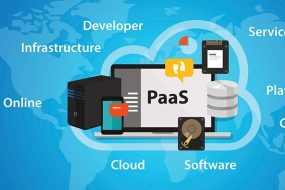
In the ever-evolving landscape of cloud computing, multi-cloud orchestration has emerged as a game-changing strategy for organizations seeking to optimize their cloud resources and enhance their overall efficiency. With the rapid pace of digital transformation, businesses must harness the power of multiple cloud platforms to meet their diverse needs. In this comprehensive guide, we delve into the intricacies of multi-cloud hosting, explore the benefits, and provide practical insights to help you master the art of multi-cloud orchestration.
Understanding Multi-Cloud Hosting
Multi-cloud hosting is a strategic approach that involves using multiple cloud providers to store and manage an organization’s data and applications. This approach offers several advantages, including increased redundancy, scalability, and flexibility. Organizations can leverage a combination of public and private clouds, customizing their cloud environment to meet specific requirements.
The Benefits of Multi-Cloud Hosting
Enhanced Reliability
One of the primary advantages of multi-cloud hosting is enhanced reliability. By distributing workloads across multiple cloud providers, organizations can mitigate the risk of downtime due to service outages. This redundancy ensures that critical applications and data remain accessible, even in the event of a cloud provider’s failure.
Improved Performance
Multi-cloud hosting allows organizations to optimize performance by selecting the best cloud provider for each specific workload. For example, resource-intensive tasks can be directed to a provider with superior computing power, while cost-effective storage options can be utilized for data retention.
Vendor Lock-In Mitigation
Vendor lock-in can be a concern when relying on a single cloud provider. Multi-cloud hosting offers the flexibility to switch between providers, reducing dependence on any one vendor. This freedom to choose enhances an organization’s negotiating power and fosters competition among providers.
Key Considerations in Multi-Cloud Orchestration
Data Security
Maintaining data security is paramount in multi-cloud environments. Employ strong encryption methods, implement access controls, and regularly monitor for security threats. Compliance with industry standards is essential to safeguard sensitive information.
Cost Optimization
To make the most of multi-cloud hosting, carefully manage costs. Monitor resource utilization and allocate workloads efficiently. Utilize cloud management tools to analyze spending and identify areas for optimization.
Performance Monitoring
Continuous performance monitoring is crucial in a multi-cloud setup. Use performance metrics and analytics to ensure that each cloud provider is meeting its service-level agreements. Identify bottlenecks and address them promptly.
Best Practices for Multi-Cloud Orchestration
Comprehensive Strategy
Develop a well-defined multi-cloud strategy that aligns with your organization’s goals and objectives. This should include a clear migration plan, cost projections, and performance benchmarks.
Automation
Leverage automation tools to streamline resource provisioning and management. Automation reduces manual intervention, minimizes errors, and enhances the overall efficiency of multi-cloud operations.
Cross-Cloud Compatibility
Ensure that your applications and data are designed to be compatible with different cloud platforms. This compatibility simplifies migration and ensures seamless integration across providers.
Common Challenges and Solutions
Data Transfer Costs
Challenge: Transferring data between cloud providers can be expensive.
Solution: Minimize unnecessary data transfers by optimizing data placement and using efficient transfer methods.
Governance and Compliance
Challenge: Maintaining governance and compliance across multiple clouds can be complex.
Solution: Implement a unified governance framework that spans all cloud providers, ensuring consistent compliance with regulations.
Interoperability
Challenge: Ensuring interoperability between different cloud platforms can be challenging.
Solution: Use standardized APIs and protocols to facilitate communication between cloud services.
Final Words
In the era of digital transformation, mastering the art of multi-cloud orchestration is imperative for organizations seeking agility, cost-efficiency, and reliability. By strategically leveraging the capabilities of various cloud providers, businesses can optimize their resources and remain competitive in a rapidly evolving market.
Commonly Asked Questions
QA1: What is the main benefit of multi-cloud hosting?
Answer: The primary benefit of multi-cloud hosting is enhanced reliability. It ensures business continuity by minimizing the risk of downtime due to cloud provider outages.
Q2: How can organizations mitigate vendor lock-in with multi-cloud hosting?
Answer: Vendor lock-in can be mitigated by using multiple cloud providers, which offers the flexibility to switch between providers and reduces dependence on a single vendor.
Q3: What are the key considerations for data security in a multi-cloud environment?
Answer: Data security in a multi-cloud environment involves strong encryption, access controls, and compliance with industry standards to safeguard sensitive information.
Q4: How can organizations manage costs effectively in a multi-cloud setup?
Answer: Cost optimization in multi-cloud hosting involves monitoring resource utilization, using cloud management tools, and allocating workloads efficiently.
Q5: What is the role of automation in multi-cloud orchestration?
Answer: Automation streamlines resource provisioning and management, reducing manual intervention and enhancing operational efficiency in a multi-cloud environment.
Advertisement







